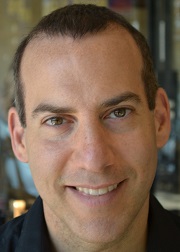A life of greater resilience is not hard to build with the right mentality.
Why would you want to focus now on future resilience?
To feel resilient now is to worry less about what will happen to you later on. When you have greater faith in your ability to handle life’s twists and turns, you live a less anxious life.
You can relax knowing that you’ll be ok in the future. There’s less need to worry about things that are out of your control if you believe you can power through adversity.
Sounds good, right?
[bctt tweet=”A life of greater resilience is not hard to build with the right mentality. “]So how do you begin to build resilience?
Start with an Inner Insurance Plan and you’ll be on your way….
The following four steps are an introduction to investing in Inner Insurance. They will get you started on the right path with the healthiest mentality possible for the future…
1) Feed yourself the language of coping and resilience.
First and foremost, you must commit to developing an internal dialogue in which you tell yourself that you will be ok no matter what you have to endure. Even if horrible things happen, remind yourself that you will find a way to adjust. The opposite would be to feed yourself the idea that you won’t be ok, and all that does is promote a life of anxiety. Get used to saying to yourself, “No matter what happens, I will be ok,” even if you don’t believe it. You may not be ok in the moment or in the midst of a crisis, but time and investment in the self heals much of the emotional pain.
2) Commit to developing reciprocal sharing and support in your relationships.
Who are the most supportive people in your life? Assess whether these are one-way relationships in which you are the “taker,” meaning that you receive much more support than you give. People who offer you the most support also require support. Therefore, it’s imperative that you make the people whose advice and energy you value the most feel like you are there for them as well. Make an effort to be there for close friends, family, colleagues and classmates who support you even if your change in attitude and behavior shifts the dynamics of the relationship. Commit to making your most valued relationships a two-way street for support so that your supports will be there for you in your greatest time of need. Face-to-face support solidifies a bond between two people much strong than digital support. Strive to rely on messaging, calling, or video conferencing as a supplement to in-person connection, not the other way around.
3. Cultivate your passions to make life feel full.
Your passions are helpful for making life feel more meaningful and full in times of loss and suffering. If you don’t already have several hobbies that make you lose track of time, then it’s time to start developing them even if this involves a massive trial and error effort. The healthiest hobby I can think of is journaling. Other examples of passions include traveling, art, music, scuba diving, photography, web design, and spiritual enhancement seminars.
Try to develop at least one passion that involves physical exertion, such as playing a sport or exercising. Activities like cycling, swimming, kickboxing or yoga are as good as it gets for managing high levels of anxiety and stress. Passive passions are activities that don’t require strenuous physical exertion, such as growing a collection, conducting frequent online research on a favorite topic, or attending meetups on a topic you love to talk about. You inner insurance plan requires at least one active passion, which is likely to help you cope better in times of heavy stress. This active passion cannot tap into your impulsive side, such as gambling or drug use (for obvious reasons.) Cultivating multiple passions provides you with options for reminding you that life can still feel meaningful if you lose touch with your purpose or value. Best case scenario is that you design your life so that you get to carry out your passions on at least a weekly basis.
4. Develop healthy habits to lean on when all else falls apart.
Yes, certain passions are also healthy habits. Some healthy habits to consider are flossing, maintaining a commitment to regular face-to-face interaction with friends,minimizing emotional eating, and striving to eat foods without artificial ingredients. When bad things happen, people often experience a sharp drop in motivation and self-care. When you’ve established a healthy habit and you face a major negative life event, your well-reinforced habits are likely to continue on auto-pilot or they will resurface once your move toward your baseline functioning. Underdeveloped habits and good intentions are fleeting if they are not consistently practiced in reality. Habits make the world feel more predictable and give you a sense of personal control.
Commit to the four steps mentioned above and you’ll be more likely to have greater success coping with life’s challenges.
Is there a more a priceless gift to offer yourself?
This is an introduction to the concept of inner insurance, a starting point meant to familiarize you with a new type of personal investment.
Once again…this is just the beginning.
Stay tuned for future blog posts containing more ideas for designing a rock-solid inner insurance plan that fits your reality and personality, and for increasing your chances of following through with your plan in the future.
Here’s to your future!!
Best,
GK








